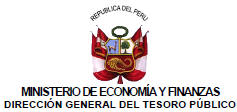The State and other public law persons may submit controversies deriving from the contractual relationship to tribunals constituted pursuant to existing treaties. They may also submit them to national or international arbitration, or as established by law.
Article 64: The State guarantees the free holding and disposal of foreign currency.
Article 65: The State defends the interest consumers and users. For such effect, it guarantees the right to information on the goods and services at its disposal in the market. It also oversees in particular the health and security of the people.
CHAPTER II
ENVIRONMENT AND NATURAL RESOURCES
Article 66: Natural resources, both renewable and non-renewable, are the property of the Nation. The State is sovereign as to their use.
The conditions for their use and granting to private individuals are determined by organic law. Any such concession grants to the holder a real right, subject to the said legal regulation.
Article 67: The State determines national environment policy. It promotes the sustainable use of its natural resources.
Article 68: The State is obligated to promote the conservation of biological diversity and the natural areas protected.
Article 69: The State promoted the sustainable development of the Amazon region with appropriate legislation.
CHAPTER III
OWNERSHIP
Article 70: The right of ownership is inviolable. The State guarantees this. It is exercised in harmony with the common good and within the limits of the law. No one may be deprived of his or her property except exclusively for reasons of national security or public need, declared by law, and after the payment in cash of fair indemnification including compensation for any possible prejudice. Action may be brought before the Judiciary in order to contest the property value set by the State in the expropriation procedure.
Article 71: With respect to property, foreigners, whether natural persons or legal entities, have the same rights as Peruvians, without in any case, being able to claim exceptions or diplomatic protection.
However, within fifty kilometers of the national boundaries, foreigners may not acquire or possess under any title whatsoever, mines, land, woods, waters, fuel or energy sources, either directly or indirectly, individually or in company, under penalty of losing, to the State, the right thus acquired. Excepted is the case of public necessity expressly declared in a supreme decree approved by the Council of Ministers pursuant to law.
Article 72: The law may, only by reasons of national security, temporally establish specific restrictions and prohibitions for the acquisition, possession, exploitation and transfer of given property.
Article 73: Property in the public domain is unalienable and imprescriptible. Property of public use may be granted to private individuals in accordance with the law for its economic use.
CHAPTER IV
TAX AND BUDGET REGIME
Article 74: Taxes are created, amended or repealed, or exemptions are established, exclusively by law or legislative decree in the event of the delegation of powers, except for tariffs and rates, which are regulated by supreme decree.
Local governments may create, amend or repeal contributions and rates, or make exemptions, within their jurisdictions with the limits established by law.
The State, when exercising its taxation powers, must respect the legal reserves principles, the principles of equality and respect for the fundamental rights of the person. No tax may have a confiscatory effect.
Emergency decrees may not contain tax matters. The laws concerning annual taxes govern as from January first of the year following their promulgation. Budget laws may not contain regulations on tax matters.
Tax regulations passed in violation of the provisions hereof shall not be of effect.
-4-



